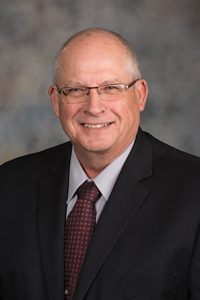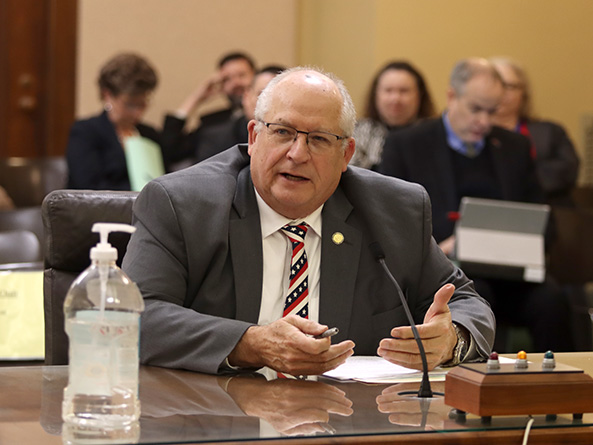Increased fees considered for alternative fuel vehicles
A bill that would increase annual registration fees incrementally for vehicles powered by alternative fuels was heard by the Transportation and Telecommunications Committee Feb. 22.

LB1149, as introduced by Henderson Sen. Curt Friesen, would raise the current registration fee incrementally for electric vehicles from the current $75 to $150 in 2027 and each year after. The fee would be collected by the county treasurer and remitted to the State Treasurer to be credited to the Highway Trust Fund.
Friesen brought an amendment to the hearing that instead would require the state Department of Transportation and the state Department of Revenue to report jointly on recommendations and proposed legislation on the administration of a kilowatt-hour excise tax on electric energy used to charge and power electric motor vehicles used on public highways in Nebraska.
Under the proposed amendment, the departments would need to submit their recommendations to the Transportation and Telecommunications Committee and the Revenue Committee by Oct. 1, 2025.
Additionally, the amendment would require that any entity engaged in the retail sale of electric power solely to charge electric vehicles collect a per-kilowatt-hour excise tax on electric energy used for that purpose, beginning July 1, 2026. Funds would be remitted to the Department of Revenue and credited to the Highway Trust Fund.
Friesen said 52 percent of Nebraska Highway Trust Fund revenues came from motor fuel taxes in 2021. As electric vehicles continue to proliferate and less motor vehicle fuel is purchased, the state needs to find solutions for highway infrastructure funding, he said.
“In the near future, we will see a significant erosion of the primary base of our dedicated highway funding mechanism,” Friesen said. “It is way too early to panic, but the next few years will require this Legislature to address how we will fund highway infrastructure in a stable and predictable way … that does not place pressure on other funding sources and priorities.”
Tim Keigher testified in support of the amendment on behalf of the Nebraska Petroleum Marketers and Convenience Store Association and the Nebraska Grocery Industry Association. Keigher said Nebraska receives $284 million in motor fuel taxes each year. With an increase in electric vehicles going forward, he said, the state needs to find other ways to fund road infrastructure.
Also in support was Andrew Dunkley, who spoke on behalf of the Nebraska Farm Bureau and several other agricultural associations. Dunkley said LB1149 would remove a tax break for individuals who live in areas where infrastructure supports electric vehicles.
“Everyone who drives on our roads should bear their fair share of the cost of their maintenance and upkeep regardless of their energy source,” he said. “Electric vehicles cause wear and tear on our transportation infrastructure, as do all vehicles. It is simply a matter of fairness.”
Loy Todd, president of the Nebraska New Car and Truck Dealers Association, also spoke in support of the proposal. Currently, 2 percent of the market is electric, he said, but the industry is growing. In the next 10 years, it’s estimated the industry will spend a trillion dollars to convert to electric vehicles, he said.
“The commitment is there. We want to sell the vehicles,” Todd said. “But highway funding … I don’t care how much you use it. You still need the roads.”
No one testified in opposition to LB1149 and the committee took no immediate action on the bill.


